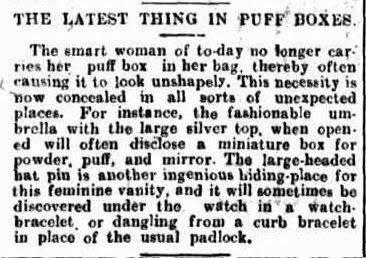This post was conceived after stumbling blindly upon one of SENEX's glorious tirades -
Practical Jokes and Evil Consequences, below - and deciding to stalk him through the delightful depths of Trove. His rambles are, in the most humble opinion of this meek and mild editor, inferior only to those of one noble writer, the infamous M.A.W. concerning whom this paper's press is most ingeniously and resolutely sealed.
The editor has decided to include the references to each article as she goes, because it's easier. From kindest tongue of editor, to high and proud ear of reader: deal. Also, our darling sage - star of the latest release - is
"A Yemenite sage aged 108, Jerusalem Jew";
photographed by Frank Hurley, and available online
here.
El Artículo Número Uno:
Poor SENEX will have his income reduced to ₤180
per annum.
El Artículo Número Dos:
And yet poor SENEX still worries about his pension of ₤1
a week being far too good for the likes of people under 85, and women.
El Artículo Número Tres:
Wait, I thought he had saved ₤5000 pounds through hard work? But if
that’s the case, where does this Parson’s pension come from?
El Artículo Número Cuatro:
If only SENEX’s children had been a little kinder with their
money this whole pensions fiasco would never had happened. The government
should make them! Note – if SENEX was 87 in 1921 (just old enough to get his
proposed pension increase – what a coincidence!), it follows that he had just
made it over the (strangely lower) suggested threshold of 65 years of age for
this particularly proposed amendment.
El Artículo Número Cinco:
SENEX hates gambling.
El Artículo Número Seis:
Although it appears that his hatred was somewhat more
vehement half a century ago – perhaps he has become resigned to the evils?
El Artículo Número Siete:
SENEX the doctor advocates for the use of brandy
(medicinally, only, of course).
El Artículo Número Ocho:
SENEX, who is most certainly NOT a paid writer for the
Sydney Morning Herald, advocates for people sharing their newspapers with poor, lonely fellows in the deep bush.
What a kind soul. For those of you who have no eyesight, another kind sould has painstakingly transcribed the slightly smudg-ed text.
Sir, - I was in a big house not far from Sydney the
other day. The usual “spring cleaning-up” was going on,
and while I was talking for a minute with the busy hostess
a servant carried out a basketful of sundries to be burned.
I noticed that there was a lot of unopened newspapers,
magazines, reports, &c., in the basket, and I said to
the
hostess, “Isn’t it a pity to waste these papers?” She
replied, “Oh, I can’t hoard up a lot of rubbish.” “Rub-
bish!” I exclaimed, with a solemn emphasis which was
meant to express the wounded feelings of a hundred patient
writers and printers. The lady blushed for her hasty
words. I guessed that her conscience was touched, so I
gently remarked, “There are many poor, lonely fellows
in the far bush who would thankfully receive those useful
papers and magazines that you have just sent out to be
burned with the weeds in your garden. Many of the papers
have unbroken envelopes on them, and as you evidently
don’t care to read them yourself, Madame, you might
easily re-direct them to persons in the country, who would
gladly read them, and perhaps pass them on to their neigh-
bours.”
The lady smiled at me pleasantly, so I felt sure that
my simple little homily had not offended her, and I was
glad.
I am, &c.,
SENEX
El Artículo Número Nueve:
In lieu of a remarkable and completely newsworthy event,
SENEX has decided to respond to Greybeard’s
mildly reproving letter with an equally mild reply.
El Artículo Número Diez:
SENEX the concerned citizen strikes again, this time
defending himself against the dreadful traffic of 19th century Sydney.
El Artículo Número Once:
SENEX the linguist helping out his fellow citizens (NB the
text of this article is nowhere near as exciting as its title lead me to
believe).
El Artículo Número Doce:
SENEX the scholar admits he knoweth not all.
El Artículo Número Trece:
SENEX the undignified blames his shame on others (this was
the first SENEX I read – note the word ‘Joke’ in the title. Look at the treasure-trove
this has revealed!).








































